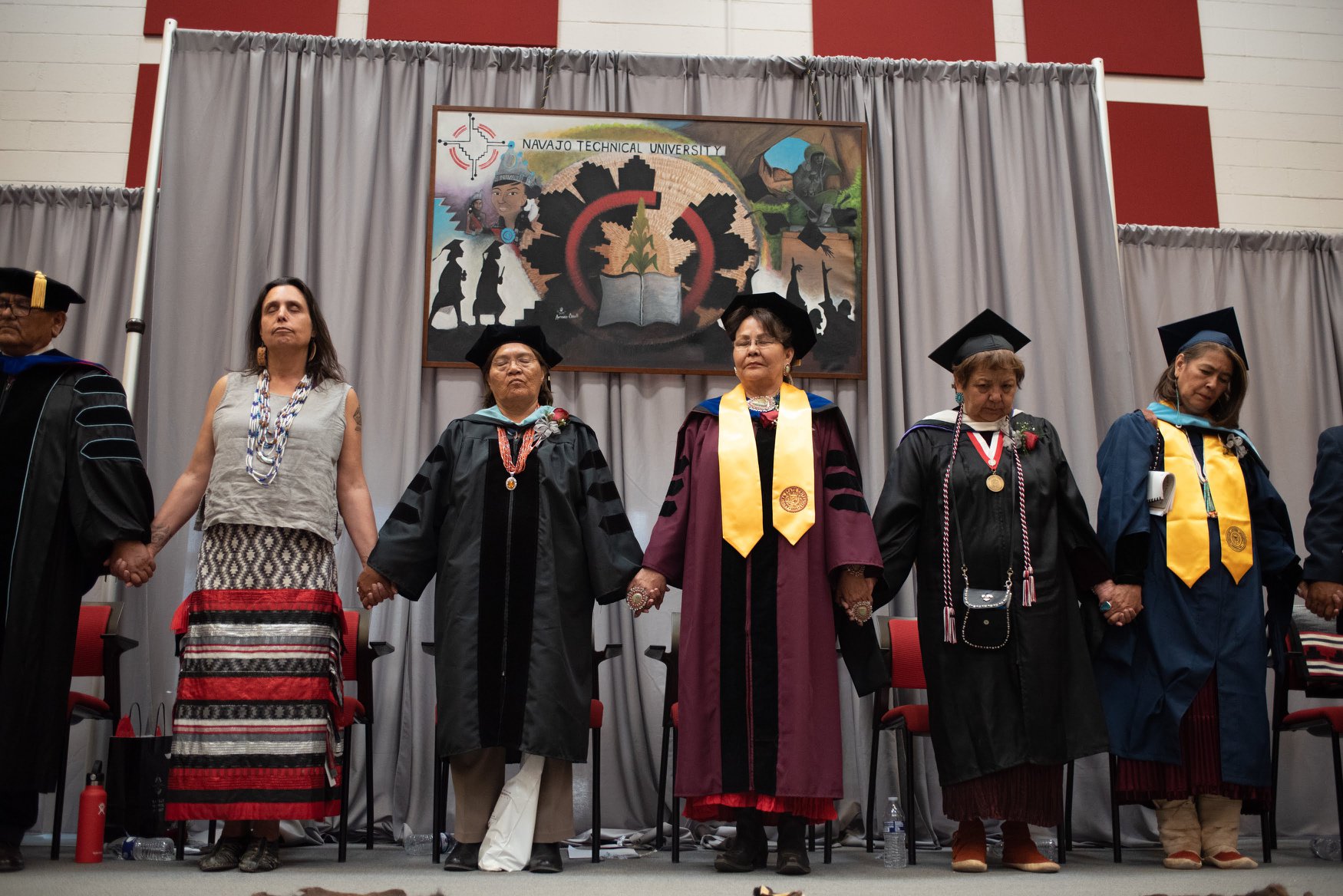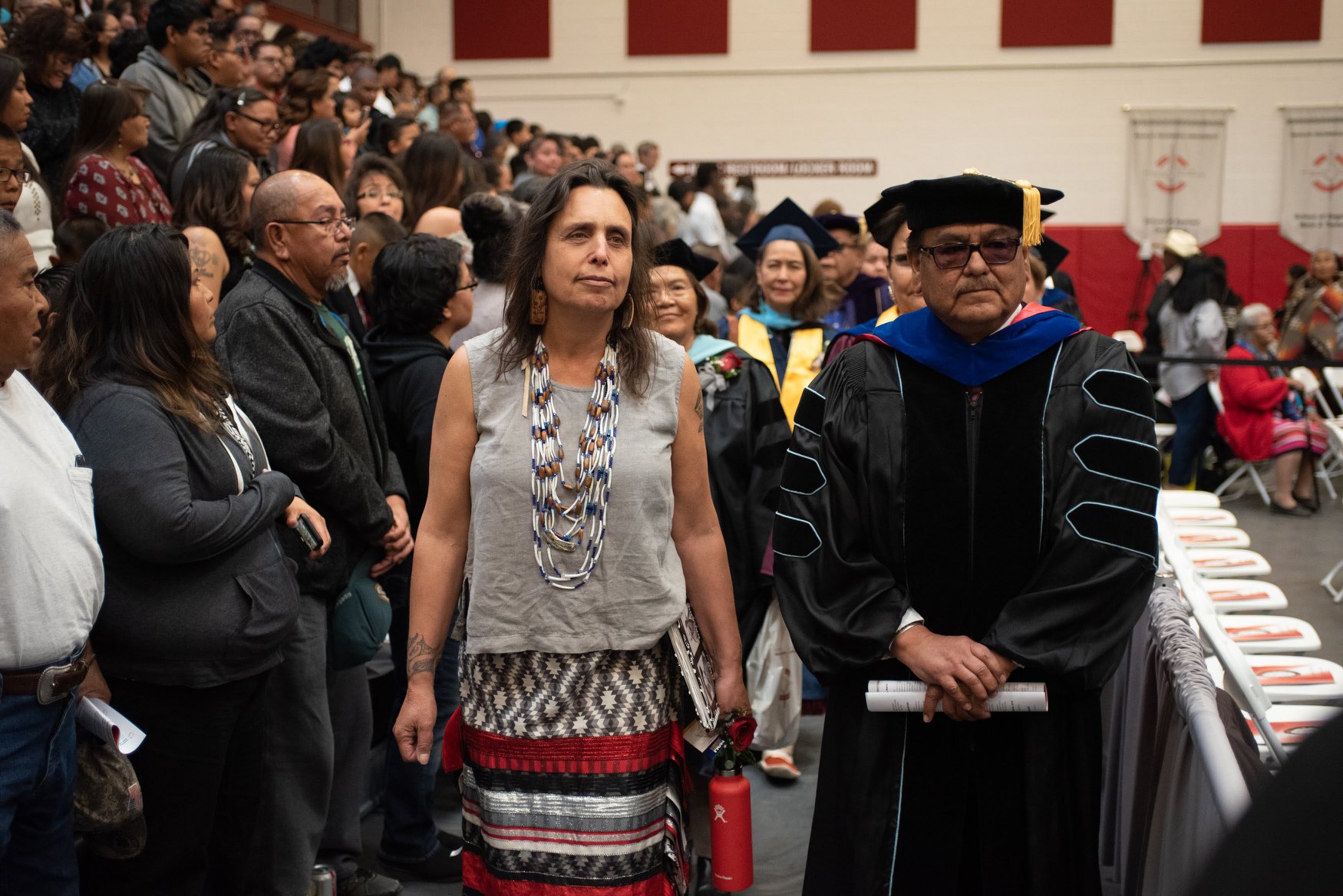"Our future generations count on our vote. Our collective well being is at stake. It is time to power up for change.” This is a time of incredible change and transformation. Statues of confederates and conquistadors are falling and we are in the midst of a global pandemic. There is no return to normal, so let’s make this world beautiful. We can be part of the change by voting for courageous and decent people. My vote goes to Biden and Harris.
Welcome to the Deep North by Winona LaDuke
President Trump is coming to Bemidji Minnesota, a town between three large Anishinaabe reservations, Red Lake, White Earth and Leech Lake. A town which is the home to Bemidji State University, some stellar schools, and also some racism, big time. Beltrami County, is where Bemidji is located.
One thing for sure, a storm is brewing and change is here. In the time of the pandemic and societal change, there’s a way to hold on to old hatred and there’s a path towards reconciliation.
There are a lot of people who have hope and many of them hope to vote.
A case for Waawaatesi: That’s the Ojibwe name for firefly.
In praise of potato by Winona LaDuke
I’m particularly fond of purple potatoes. I grow them. Mewizha, way back in the day, my ancestors also grew a purple potato.
“The Ojibwe have cultivated this early potato, according to their traditions since aboriginal times, and it surely looks primitive enough. It is round in circumference, about two or three inches long, has purplish flesh, and never cooks to a mealy consistency. It is much prized for soups and is always firm and crisp when cooked..,” Ethnobotanist Huron Smith would report to the Milwaukee museum 100 years ago.
What we can learn from bats by Winona LaDuke
There are many old stories in Ojibwe culture. Those stories often tell of lessons brought to us by animals. There’s an old story about how the bat helped us win a lacrosse game and now that’s why the birds migrate. This time might be known as the time that the bat, or the bapakwaanaajiinh, taught us a lesson.
Amid Blackout, a California Tribal Village Kept Lights On With Solar Energy by Winona LaDuke
Energy leadership is coming from Native people. A Deal With Future Generations
Building renewable energy projects is about more than just post-fossil fuel economics. It’s about the future of electrification in this country. Think of it this way: This past month, Pacific Gas and Electric, northern California’s largest northern utility, blacked out 500,000 homes because of forest fires; last year’s Paradise Fire was actually caused by PG&E Lines. As fires raged, fanned by climate change and poor infrastructure, there were still lights on at the Blue Lake Rancheria, a Wiyot, Yurok and Hupa village near Eureka, California – with a megawatt of solar and a battery backup system.
The last tar sands pipeline by Winona LaDuke
In early June, I traveled to Enbridge’s Shareholder meeting in Calgary, in Alberta Canada. Outside, laid off oil workers screamed, “Build that Pipe” over a bullhorn, and asked people to honk if they supported Canadian oil. Those tar sands workers will likely never have jobs in the industry again – economists, and even the oil fairy government of Alberta, are sobering up to the Boom Bust economy of energy projects. It’s the bust and there is no boom in sight. That’s the problem. It’s really a race to the bottom and to the end – that is to be the last tar sands pipeline. For the past four years Canada has been trying to run tar sands pipelines through the US, to the Coast, to anywhere, and it has not gone well. And it’s not going to, and here are the reasons why ...
Navajo Technical University confers first honorary doctoral degree to John Pinto
Navajo Technical University confers first honorary doctoral degree to John Pinto
CROWNPOINT — When recapping his six year journey to earn a bachelor's degree at Navajo Technical University, Darrick Lee called the experience a "privilege."
Graduates heard an inspiring speech by Winona LaDuke, an internationally renowned activist for the environment and for social justice.
LaDuke is Anishinaabe and executive director of Honor the Earth, an organization she co-founded with Amy Ray and Emily Salier of the music group, Indigo Girls.
In her remarks, she reflected on the energy transition the Navajo Nation faces and how the graduates will take the lead in developing that change, including investment in solar and wind projects.
"No time like the present to rebuild your energy economy," she said.
She said now is the time to end the injustice done by energy developers to Native peoples, including using the land to produce energy for urban populations while nearby households remain without electricity.
"Your nation will be a leader in this. I see this and know this. We are all counting on you to do the right thing," LaDuke said.
Noel Lyn Smith covers the Navajo Nation for The Daily Times. She can be reached at 505-564-4636 or by email at nsmith@daily-times.com.










